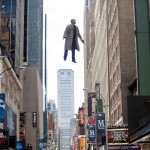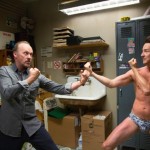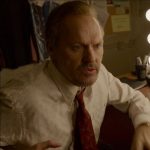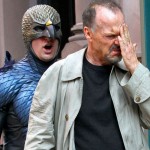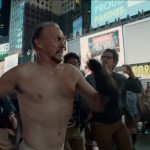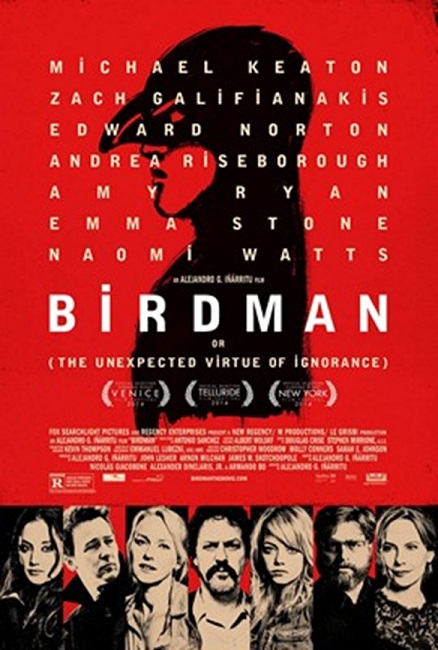
Birdman or (The Unexpected Virtue of Ignorance) – 2015
Well, another year has gone by, full of good movies and bad. This year, the one that rose to the top and grabbed the brass ring was a strange one, to be sure. Birdman was a good movie. I’ll say that right off the bat. It had a good story, though eclectic. The acting was above average. The music was, at times, annoying, but effective (I’ll get to that in a bit.) And the ending was… hard to understand.
The film was trying very hard to be “artsy”, and on some levels, it succeeded. The story was easy to follow, and was punctuated by the self-destructive ravings of the protagonist’s imagination, which was good, because that was where most of the film’s drama came from. It had a handful of special effects that gave the whole thing a supernatural feel, though once I figured out that they were all in the main character’s head, a little bit of that magic went away.
Birdman starred Michael Keaton, who is a master of his craft. He is always an incredibly good actor, and this movie is no exception. He has been working pretty consistently since 1978, proving time and time again what he is capable of on the silver screen. Here he played the role of Riggan Thomson, a washed up Hollywood actor with a notable career behind him. His most famous role was, of course, Birdman, a costumed super-hero.
But Birdman is a thing of the past, existing now, only in Riggan’s mind. His ex-wife, Sylvia, played by Amy Ryan, and his daughter, Samantha, played by Emma Stone see glimpses of Riggan’s dangerous Birdman persona, but dismiss it as either the vanity of an actor, or the selfishness of a bad husband. Neither of them suspect that it is actually a kind of psychosis caused by the man’s failed career and the nostalgic remnants of his glory days.
The cleverly written script had flights of fancy that take place in Riggan’s mind as he listens to the voice of Birdman, telling him what to do and how to behave. To me, it was like his subconscious, goading and manipulating him to be the superhero of his own life. During these episodes, he has the power of telekinesis and flight, able to throw things around the room using the power of his mind, or soar above the streets of New York. But the film also makes the point that when he does these things, he is really just physically tearing the room apart, or imagining that he can fly.
The plot takes place in a theatre in the Big Apple. Riggan is trying to revive his stalled career by putting on a play based on Raymond Carver’s short story, What We Talk About When We Talk About Love. The cast of the play includes the young and upcoming actress, Lesley Truman, played by Naomi Watts, Riggan’s girlfriend, Laura Alburn, played by Andrea Riseborough, and a talented but narcissistic method actor, Mike Shiner, played by Edward Norton. The final member of the film’s cast is Riggan’s lawyer and best friend, Jake, played by Zach Galifianakis.
Interesting note: When the script was still in the early stages, Keaton was not in director Alejandro Gonzalez Inarritu’s mind to play the lead, but by the time the script was finalized, there was no longer any option. In his opinion, it had to be Keaton.
As the rehearsals for his play continue and as it goes into previews, Riggan’s cast becomes more and more difficult to work with. At the same time, his recovering drug addict daughter displays an incredible lack of support that borders on outright scorn. His girlfriend is playing mind games with him, and Mike the method actor seems to be going out of his way to ruin everything. But it was the ending of the play on opening night that brought the house down.
You see, in the stage show, Riggan’s character commits suicide by shooting himself in the head. And we, the viewers see it coming. The actor’s questionable mental state cannot possibly survive all the negative energy, the setbacks, the lack of support, and the sheer stress of surviving. So on opening night, when we see him grab a real gun instead of the stage prop, we are horrified, though not surprised.
But what really happened when the dreaded moment finally arrived, took me by surprise. He didn’t kill himself. Instead, he shot his nose off. The next scene shows him in the hospital wearing facial bandages that oddly resemble a superhero mask. But it was the last few seconds of the film that ultimately left me confused.
So I get that he had proved his point. He was validated by a good review of his performance which applauded his real ending. He says his farewell to his Birdman persona, who is, for once, silent. Then he goes to the window and sees birds gathered on the window ledge. He climbs out onto the ledge with them and then the scene shifts to show his daughter entering the room. She is confused by his absence and calls his name a few times. Then she goes to the window, looks down at the street, looks up into the sky, and smiles. Roll credits!
OK, so the big question is, what actually happened? Did he commit suicide? Did he fly into the sky? It was clear that he was no longer in the room, but if he had been dead on the street, then Samantha would have had reacted with horror. Based on her smiling reaction, though, we have to assume that she saw him flying. But by that point, I had already been convinced that all Riggan’s supernatural Birdman powers were only in his mind. And besides that, he had said goodbye to Birdman only a moment before, indicating that his self-destructive impulses had left him. It left me confused.
But I think that was the director’s intent. It was intentionally left open-ended, and while that can often be an effective way to end a movie, I don’t think it worked that well for this one. I would have liked to see one of two things instead. First he could have said goodbye to Birdman, and then made his peace with his family. The gunshot wound could have been an accidental catharsis for Riggan. Or second, we could have ended the film with him actually killing himself at the end of the stage show. It would certainly have given the film a more poignant and defined ending.
So, I didn’t particularly care for the nebulous ending, but it’s alright. There were some very distinct things about Birdman that set it apart from most other movies. The three that I’d like to focus on were the acting, the music, and the directing style.
The acting was all above par. Keaton, Stone, and Norton each stood out to me as particularly good. Keaton has always been a good actor. His performance was deep without being overdone or melodramatic. He has the feel of the common man about him that makes him easy to identify with. Stone’s dramatic scenes were well acted, but I have the sense that her performance was enhanced a bit by her incredibly well-written dialogue. And then there was Norton, who has always been a good actor, although, in this film, he seemed like he wasn’t really acting at all. He was playing himself, which, fortunately, was exactly what the character called for. He was a very believable over-the-top jerk.
Next I’ll discuss the music a bit. The soundtrack was a very unusual one, to be sure. First, there were a few well-known classical pieces of music that cropped up every now and then, but it was the film’s original score that was so unique. I’m referring to the fact that it was composed and played on a single instrument: the drums. There were no melodic passages, no easily recognizable themes. It was just a single drummer on a set of drums.
Now, supposedly, each character had his or her own rhythmic theme, but I guess my ear isn’t trained enough in percussion instruments to hear them. It just sounded like banging noise to my ears. In fact, there were times, usually when Riggan was having a Birdman episode and his sanity was slipping just a little bit, when the disjointed and chaotic score got in the way of the dialogue. I’m pretty sure that was on purpose, but by the end of the movie, it got old. Other than that, the drums added to the confusion and hard edged drama taking place on the screen. In that respect, the score was effective, if not enjoyable.
Interesting note: Jazz drummer Antonio Sanchez composed and recorded the film’s entire score. He and director Gonzalez Inarritu felt snubbed by the Academy when the score for Birdman was not nominated for Best Original Score. They appealed to the Academy, but were still denied on the grounds that “…the film also contains over a half an hour of non-original (mostly classical) music cues that are featured very prominently in numerous pivotal moments in the film…”
The third thing about the film which I have to applaud was the style in which it was filmed. What I mean by that is that most of the film was shot in long takes. There were a number of reasons for the choice, but the one that seems the most obvious to me is that Gonzalez Inarritu wanted the audience to feel as if they were there in the room with the actors, and in real life, there are no cuts between takes, no quick scene changes, and no switching back and forth between characters. It also had the added effect of mimicking the live performances of a stage show, like the one that Riggan and his troupe of actors were in.
This actually made the jobs of the cast of actors much more difficult than in a regular film. The long takes forced them to rehearse and rehearse a scene to get their timing perfect. They had to memorize long lines of dialogue. They also had to depend much more heavily on the competence and skill of the entire cast and crew to make it work. If they were filming a 6 minute sequence without a cut, then a mistake in the final minute could ruin the entire take. Also, the camera men and crew had to know their blocking just as much as the actors. It is an incredibly difficult way to film a movie, but it succeeded in giving the movie a very unique style.
Birdman was a good film and I enjoyed it. But I’ll be honest it is not one of my favorite Best Picture winners. I think it was trying too hard to be clever and artsy, which, for me, detracted from its overall effectiveness. It was good, but not as good as it thinks it was.



